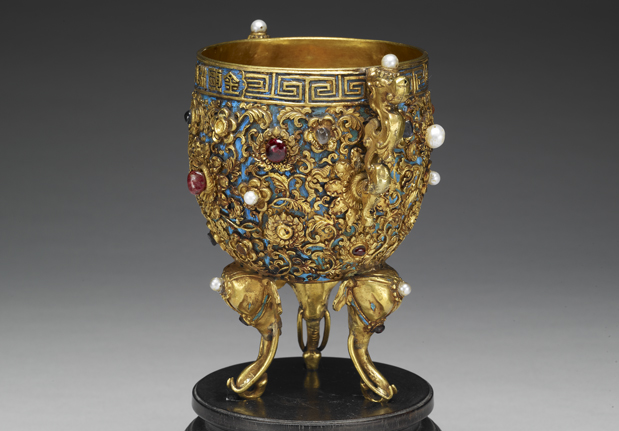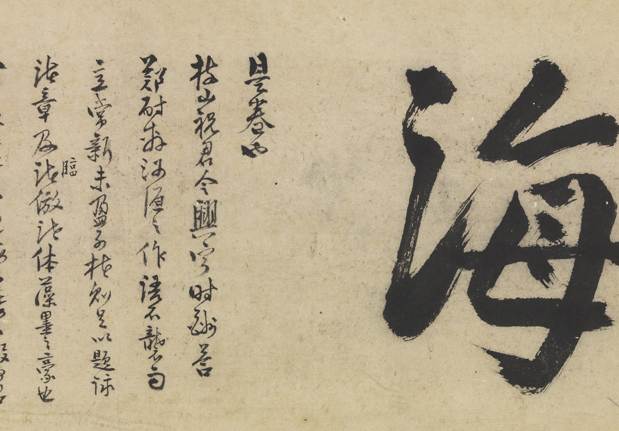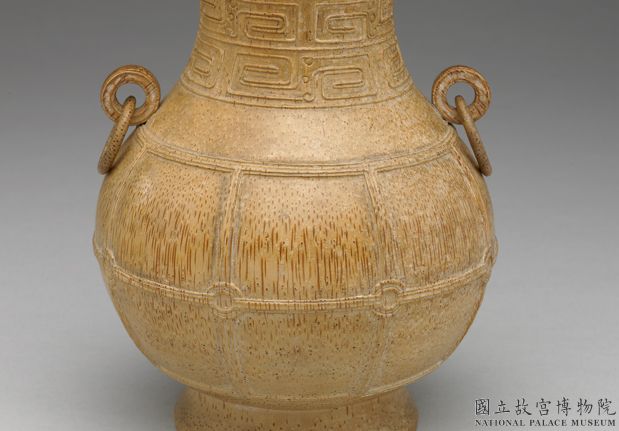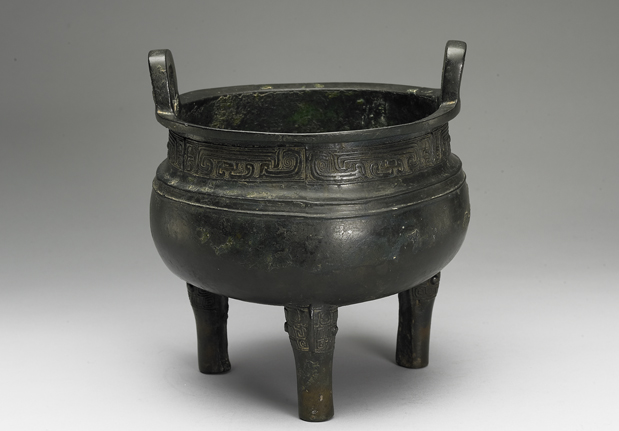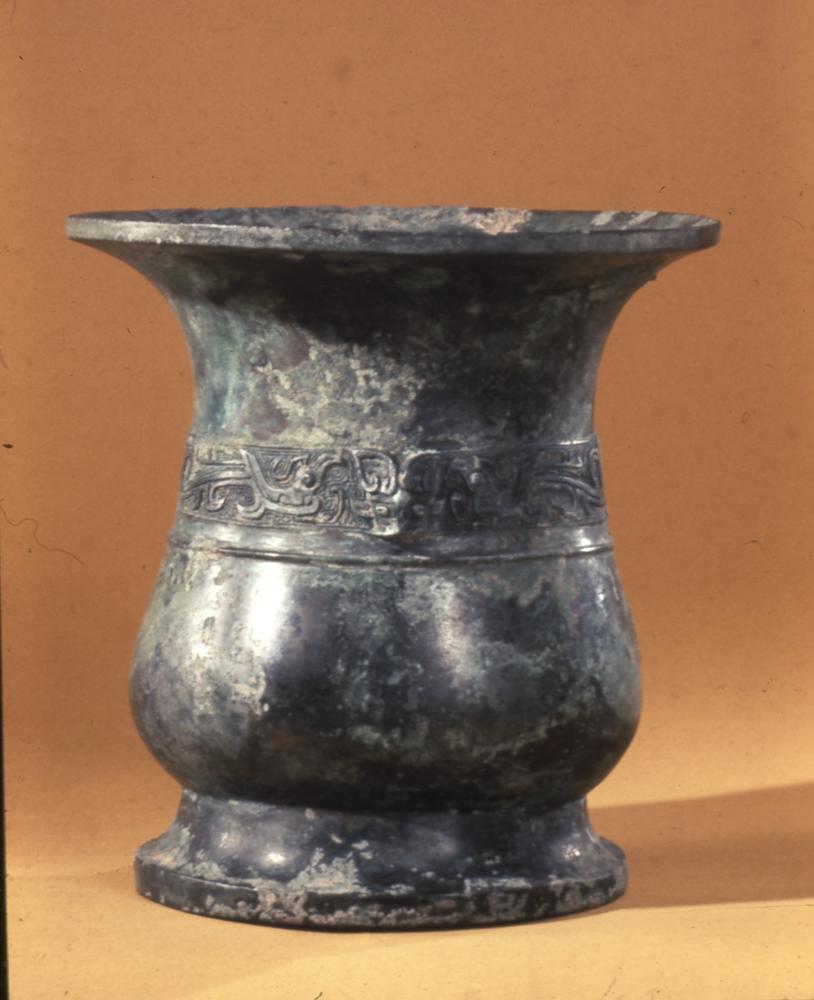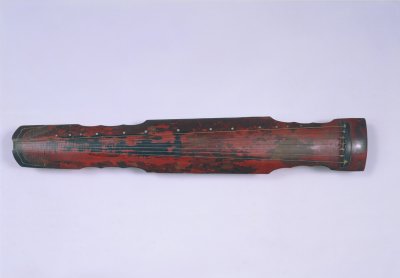Period:Ming dynasty Production date:1522-1566 (circa)
Materials:porcelain
Technique:incised, glazed,
Subjects:flaming jewel lotus
Dimensions:Height: 21.50 centimetres Length: 14 centimetres
Description:
Porcelain ewer with incised decoration and monochrome turquoise glaze. This ewer has an ovoid body which tapers into a flat base. It has a long waisted tubular neck with a dish mouth and a long vertical spout, bent at the end and supported by an angled strut with curlicue terminals. Its handle joins the neck about halfway down, is ribbed and somewhat slanted with a circular attachment at the top for securing a cover. A design of lotus flowers and foliage, growing in a pond, is incised on either side, with flaming pearls and ‘ruyi’ clouds on one side of the neck and a stylized rhino horn and more ‘ruyi’ clouds on the other. The base is unglazed.
IMG
![图片[1]-ewer BM-1936-1012.92-China Archive](https://chinaarchive.net/Ming dynasty/Ceramics/mid_00272703_001.jpg)
Comments:Harrison-Hall 2001:Such ewers, modelled on Near Eastern prototypes, were made in large quantities in the Jiajing and Wanli eras. The present piece is of an identical form to the Museum’s monochrome white ewer (see BM 1947.0712.87). Originally it would have been fitted with a cover.
Materials:porcelain
Technique:incised, glazed,
Subjects:flaming jewel lotus
Dimensions:Height: 21.50 centimetres Length: 14 centimetres
Description:
Porcelain ewer with incised decoration and monochrome turquoise glaze. This ewer has an ovoid body which tapers into a flat base. It has a long waisted tubular neck with a dish mouth and a long vertical spout, bent at the end and supported by an angled strut with curlicue terminals. Its handle joins the neck about halfway down, is ribbed and somewhat slanted with a circular attachment at the top for securing a cover. A design of lotus flowers and foliage, growing in a pond, is incised on either side, with flaming pearls and ‘ruyi’ clouds on one side of the neck and a stylized rhino horn and more ‘ruyi’ clouds on the other. The base is unglazed.
IMG
![图片[1]-ewer BM-1936-1012.92-China Archive](https://chinaarchive.net/Ming dynasty/Ceramics/mid_00272703_001.jpg)
Comments:Harrison-Hall 2001:Such ewers, modelled on Near Eastern prototypes, were made in large quantities in the Jiajing and Wanli eras. The present piece is of an identical form to the Museum’s monochrome white ewer (see BM 1947.0712.87). Originally it would have been fitted with a cover.
© Copyright
The copyright of the article belongs to the author, please keep the original link for reprinting.
THE END
